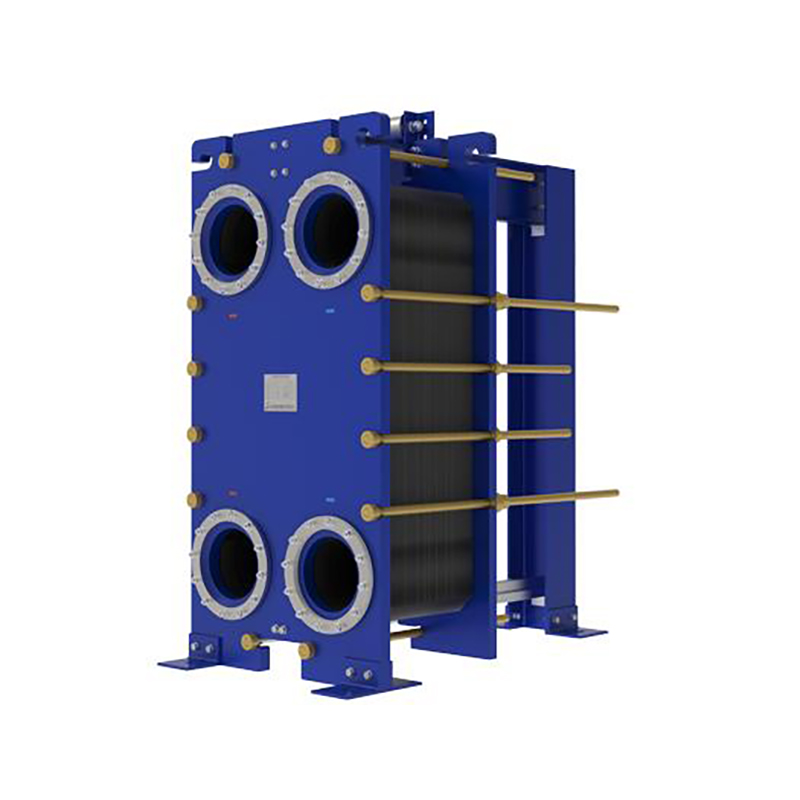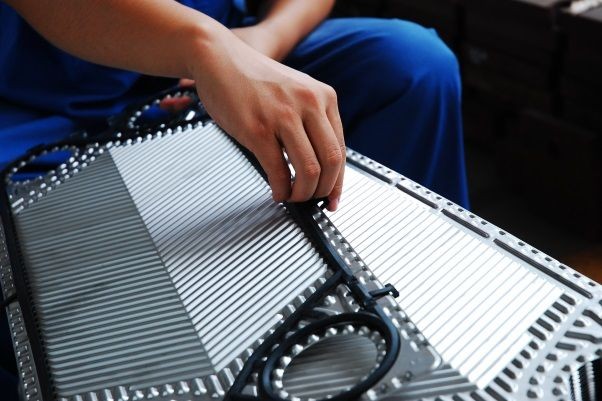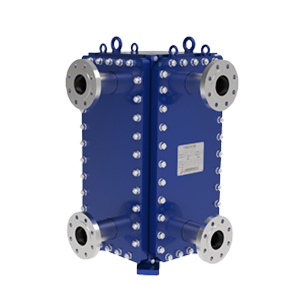5 key roles of plate heat exchanger gaskets.
Plate heat exchanger gaskets perform 5 key roles: ...
More
An oil heat exchanger is a specialized device designed to transfer heat between oil and another fluid, typically water or air, to regulate temperature in industrial systems. These exchangers are critical in applications such as hydraulic systems, lubrication systems, and power generation, where maintaining optimal oil temperature ensures efficiency and longevity of machinery. Constructed from durable materials like stainless steel or aluminum, oil heat exchangers come in various designs, including shell-and-tube, plate, and finned-tube configurations, each suited for specific operational demands.
Oil heat exchangers play a vital role in preventing overheating, which can degrade oil quality and damage equipment. By efficiently dissipating excess heat, they enhance system performance and reduce downtime. For instance, in hydraulic systems, a well-functioning heat exchanger can extend oil life by up to 50%, as cooler oil retains its viscosity and lubricating properties longer. Industries such as manufacturing, automotive, and energy rely on these devices to maintain stable operations, underscoring their importance in modern industrial processes.
Choosing an oil heat exchanger offers numerous advantages, including improved energy efficiency, reduced maintenance costs, and enhanced equipment reliability. These devices are engineered to handle high thermal loads, ensuring consistent performance even in demanding environments. For example, plate-type oil heat exchangers can achieve heat transfer efficiencies of over 90%, making them ideal for applications where space and energy savings are priorities. Additionally, their compact design allows for easy integration into existing systems without significant modifications.
Oil heat exchangers also contribute to sustainability by minimizing energy consumption and reducing waste. By maintaining optimal oil temperatures, they lower the risk of thermal degradation, which can lead to frequent oil changes and increased disposal costs. Data from industrial applications show that integrating a high-quality heat exchanger can cut energy usage by 15–20%, translating to substantial cost savings over time. Whether for large-scale power plants or small hydraulic units, investing in a reliable oil heat exchanger ensures long-term operational efficiency and environmental compliance.
Select the most popular foreign trade service products to meet your diverse needs
Learn more about the dynamics and professional knowledge of the foreign trade industry

Plate heat exchanger gaskets perform 5 key roles: ...
More
API 662 defines standards for plate heat exchanger...
More
A gasket in heat exchanger seals surfaces, blocks ...
More
Compare top frame plate heat exchanger models for ...
More
User reviews show the american standard heat excha...
More
You can see clear differences between welded block...
MoreSelect the most popular foreign trade service products to meet your diverse needs
Explore more content related to foreign trade services

User Comments
Service Experience Sharing from Real Customers
John Smith
Mechanical EngineerThe oil heat exchanger works flawlessly and has significantly improved our system's efficiency. Highly recommended!
Emily Johnson
Maintenance SupervisorGreat product! The oil heat exchanger is durable and easy to maintain. It has reduced downtime in our operations.
Michael Brown
Plant ManagerThis oil heat exchanger exceeded our expectations. It handles high temperatures and pressures with no issues.
Sarah Davis
HVAC TechnicianThe oil heat exchanger is a reliable component in our systems. Installation was straightforward, and performance is excellent.